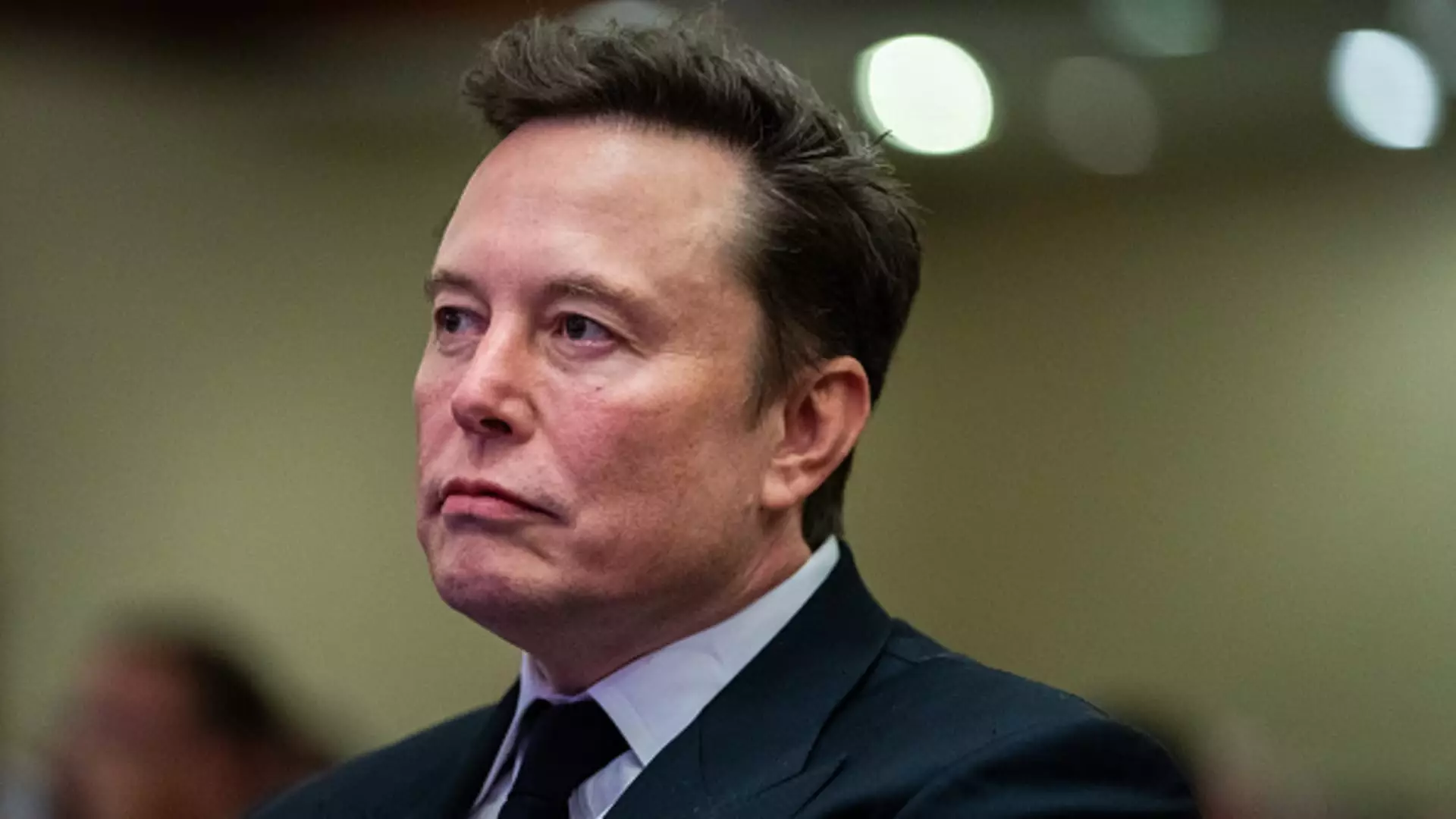The narrative surrounding technology billionaire Elon Musk and his acquisition of Twitter—a platform he rebranded as X—has evolved significantly since his takeover in 2022. Musk, who has brandished himself as a champion of free speech, stepped into the spotlight amid heated debates about censorship and political bias on social media. His proclaimed objective was to rectify what he termed an unfair suppression of conservative voices on the platform. However, recent incidents have raised questions about whether this ideal of unfettered expression extends to those who dare to oppose his views.
On a Friday in October 2023, a wave of accusations arose from conservative users of the platform after several prominent right-wing accounts reported losing access to vital features that included blue verification badges—a symbol of authenticity—and monetization capabilities. NBC News identified at least 14 conservative accounts that found themselves cut off from these premium offerings, igniting claims of censorship directed at Musk by his fellow conservatives. As discontent brewed, some users expressed their fears about the future of their content creation, questioning whether they could sustain their activities without crucial financial support.
Critics within the conservative community expressed their dismay, viewing these actions as a betrayal from Musk. They noted the irony of being marginalized on a platform that was purchased with the promise of amplifying right-leaning voices. In an age where digital platforms have become modern-day public squares, the implications of these changes extend beyond individual users; they present a troubling picture of the battle over free speech, especially when the purveyor of that speech—Musk—himself walks a fine line between advocacy for freedom and the exercise of authority.
Algorithmic Manipulation and Perceptions of Shadowbanning
Just hours before the backlash hit, Musk posted a reference to X’s algorithm, suggesting that user visibility declines for accounts that receive numerous blocks or mutes from credible users. This statement incited further accusations of what many termed “shadowbanning,” a practice where users’ content receives limited engagement without their knowledge. Critics pointed to the eerie timing of Musk’s reminder as further evidence that he was targeting dissenting opinions. For Musk, who has built much of his public persona on disruption and change, such comments were perceived not as transparency, but as a potential tool for enforcing a compliance culture on the platform.
This atmosphere of distrust was further inflamed considering the ongoing debate about immigration policy—an issue where Musk’s views diverge sharply from those of many right-wing supporters. The conservative accounts, largely affiliated with a media outlet known as ConservativeOG, have positioned themselves in staunch opposition to Musk. The head of this outlet, Preston Parra, explicitly labeled the removals as a “political takedown.” Parra framed the issue not just within the confines of social media but as a broader struggle for the ideological soul of the American right.
The decisions made by Musk and X come amid a turbulent political landscape marked by fierce debates over immigration, aligning with the rise of anti-immigration sentiments within conservative circles. As prominent figures like Parra decried Musk’s actions, they articulated a growing discontent among grassroots conservative supporters regarding the outreach of Silicon Valley billionaires. For many, the narrative is not simply about losing social media privileges; it reflects a perception that the larger cultural and political narrative is being dictated by a cadre of wealthy elites whose interests may not align with those of traditional conservatism.
As sentiments grow that pro-immigration tech figures—Musk included—are undermining conservative values, it is apparent that Musk’s dual identity as an immigrant and entrepreneur complicates his relationship with the right. While memberships in specific political circles are often celebrated, Musk’s historical associations and statements continue to elicit skepticism from hardline conservatives who equate those with disloyalty.
The controversy surrounding Elon Musk’s recent decisions on his social media platform underscores a fragile dynamic between expression and control. As Musk navigates these turbulent waters, the stakes extend beyond discontented voices toward fundamental questions of how digital monopolies manage speech. The tumult suggests that the battle for the future of conservative expression online is far from over, and Musk’s role as a self-proclaimed defender of free speech may continue to be challenged from within the ranks he aims to inspire.


Leave a Reply